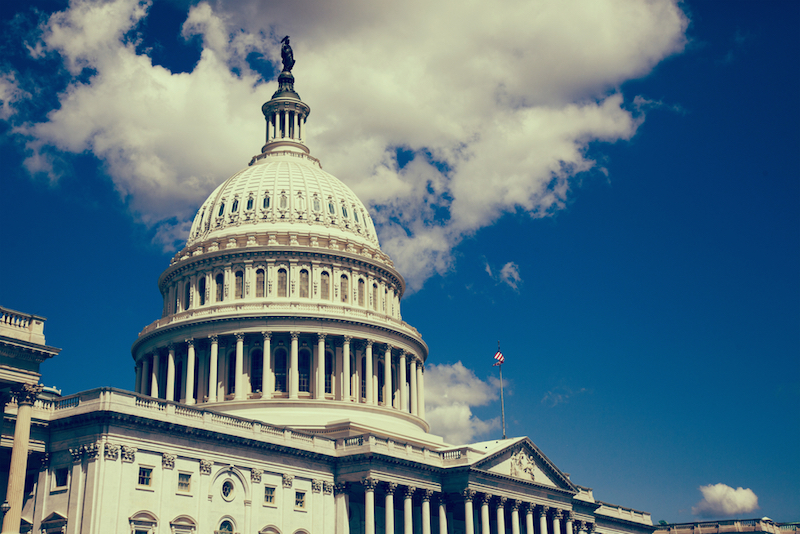
Obamacare, Nixoncare: Health Care Debates Are All About Politics

Get the world’s most fascinating discoveries delivered straight to your inbox.
You are now subscribed
Your newsletter sign-up was successful
Want to add more newsletters?

Delivered Daily
Daily Newsletter
Sign up for the latest discoveries, groundbreaking research and fascinating breakthroughs that impact you and the wider world direct to your inbox.

Once a week
Life's Little Mysteries
Feed your curiosity with an exclusive mystery every week, solved with science and delivered direct to your inbox before it's seen anywhere else.

Once a week
How It Works
Sign up to our free science & technology newsletter for your weekly fix of fascinating articles, quick quizzes, amazing images, and more

Delivered daily
Space.com Newsletter
Breaking space news, the latest updates on rocket launches, skywatching events and more!

Once a month
Watch This Space
Sign up to our monthly entertainment newsletter to keep up with all our coverage of the latest sci-fi and space movies, tv shows, games and books.

Once a week
Night Sky This Week
Discover this week's must-see night sky events, moon phases, and stunning astrophotos. Sign up for our skywatching newsletter and explore the universe with us!
Join the club
Get full access to premium articles, exclusive features and a growing list of member rewards.
Once upon a time, two health care plans that were far more liberal than "Obamacare" were debated in the halls of Congress. The plans were introduced by none other than President Richard Nixon, a Republican and conservative stalwart.
First came Nixon's National Health Strategy in 1971, which the Democrats ridiculed and fought tooth and nail, warning it would hurt the middle class. Nixon tried again in 1974 with his Comprehensive Health Insurance Plan and encountered the same partisan resistance.
In an essay published today (July 13) in the journal Pediatrics, University of Michigan researchers suggest that the Democrats' opposition to Nixon back then, compared with the today's Republican insurgency against the more conservative Obamacare plan, officially known as the Affordable Care Act (ACA), demonstrates that health care debates are more about political opportunism than a rational discussion to improve the health of the nation.
Although the plans are different and the times are different, the politicians in both cases relied on much of the same rhetoric to make their points, the researchers said. [7 Great Dramas in Congressional History]
"It's not that one [plan] is right and one is wrong," said lead author Dr. Gary Freed, a University of Michigan pediatrician and health policy researcher. Rather, a comparison of congressional reactions to the plans reveals "the dangers of elevating blind partisanship over meaningful debate about important issues for our nation's health" and "turn[ing] a blind eye to proposals simply because they're proposed by one party or the other," Freed said.
How radical were Nixon's plans in comparison to Obama's? Nixon was pushing for a stronger federal role in health care and greater cost burdens on employers, the very elements the Republican-led Congress oppose today with the ACA, Freed said.
For example, Nixon proposed requiring that all employers provide basic health insurance for all full-time employees; the ACA requires this only for businesses employing more than 50 workers. Under Nixon's plans, employees would have paid less for health insurance than they do today; the 1974 plan included federal subsidies to help with employers' share of the extra cost burden, according to the researchers.
Get the world’s most fascinating discoveries delivered straight to your inbox.
Nixon's 1974 plan also would have replaced state-run Medicaid programs for the poor with a federally subsidized plan open to anyone not eligible for employee health insurance or Medicare. But today, 16 governors — all Republican — have refused to accept federal funds to expand Medicaid coverage in their states, as provided by Obama's plan, according to the Kaiser Family Foundation.
After the death of Nixon's plans, the United States did not see meaningful changes in health care until the late 1990s with the expansion of Medicaid to cover children living in near-poverty, according to the researchers. Even after this change, one-third of the nation was still uninsured.
At the heart of Nixon's plans was helping the disadvantaged: "Those who need care most often get care least. And even when the poor do get service, it is often second-rate," Nixon told Congress in 1971. "This situation will be corrected only when the poor have sufficient purchasing power to enter the medical marketplace on equal terms with those who are more affluent."
Freed and his co-author, Anup Das, a student the University of Michigan Medical School, concluded that, regardless of one's view of Nixon, both his plan and Obama's were driven by a desire to provide health coverage for the people in America who don't have it, and to keep health care costs from continuing to rise out of control.
"We need to put health care in a historical perspective and not go to extremes for political purposes," Freed said. "I would hope this history will help policy makers think about what the policy is trying to accomplish for the American people."
Follow Christopher Wanjek @wanjek for daily tweets on health and science with a humorous edge. Wanjek is the author of "Food at Work" and "Bad Medicine." His column, Bad Medicine.

Christopher Wanjek is a Live Science contributor and a health and science writer. He is the author of three science books: Spacefarers (2020), Food at Work (2005) and Bad Medicine (2003). His "Food at Work" book and project, concerning workers' health, safety and productivity, was commissioned by the U.N.'s International Labor Organization. For Live Science, Christopher covers public health, nutrition and biology, and he has written extensively for The Washington Post and Sky & Telescope among others, as well as for the NASA Goddard Space Flight Center, where he was a senior writer. Christopher holds a Master of Health degree from Harvard School of Public Health and a degree in journalism from Temple University.
 Live Science Plus
Live Science Plus










